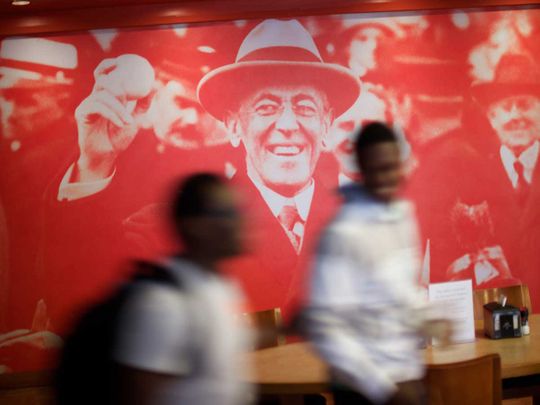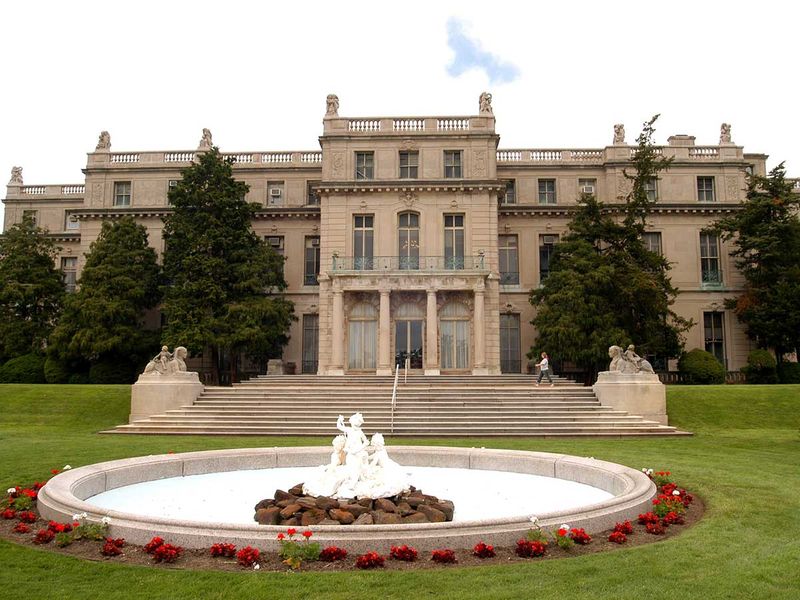
In William Shakespeare’s Julius Caesar, Mark Anthony’s eulogy for the fallen Emperor includes this oft quoted line, “The evil that men do lives after them; the good is oft interred with their bones.”
I thought of this quote when Princeton University voted recently to remove former President Woodrow Wilson’s name from buildings and programmes at the school where he served as president from 1902 to 1910, before being elected president of the United States in 1912. Their decision was based on Wilson’s “racist thinking and policies ...[his] racism was significant and consequential even by standards of his own time. He segregated the federal civil service after it had been integrated for decades, thereby taking America backward in its pursuit of justice. He not only acquiesced in but added to the persistent practice of racism in this country, a practice that continues to do harm today.”
For almost a century Wilson had escaped the judgement of history — turning Mark Anthony’s quote on its head. That will no longer be the case.
[Wilson] was an avowed racist who believed in white supremacy. He justified his policies with comments about the innate inferiority of Black Americans and the benefits that would accrue to them by being placed in a subordinate position in society.
Most Americans learn in high school and college that, after the First World War, Wilson led the struggle to create the League of Nations in an effort to prevent another world war, which he predicted “with absolute certainty [would occur] within another generation ... if the nations of the world do not concert the method by which to prevent it.” We also learned that despite being its major proponent, Wilson’s attempts to have the US join the League were blocked by an isolationist Congress.
I was influenced by Wilson’s famous “Fourteen Points,” which called for public diplomacy instead of secret pacts among nations, freedom of navigation, removal of barriers to free trade, drastic arms reductions, and self-determination for formerly colonised peoples. Wilson’s advocacy of this last principle inspired me, especially when I learned that he created the King-Crane Commission to survey the attitudes and aspirations of the Arabs of the Levant. The findings of the Commission, that Arabs sought unity and rejected the British and French claims to divide and control their region, were ignored by these European powers, much to Wilson’s regret.
The other Woodrow Wilson
In short, I learned that Wilson was a progressive, visionary leader in foreign affairs, whose ideas were too forward looking for his time. Despite having spent a year doing post-doctoral work at Princeton, it was only a few years ago, that I became aware of the other Woodrow Wilson.
I am involved with a small group in Northwest Washington that is deeply disturbed about the ethnic cleansing of Black families that took place in our neighbourhood in the post-Wilson era. In the late 1920s, hundreds of Black homeowners were forced from their properties to make way for the construction of what were, at the time, two all-white schools. One of these schools was, and still is, named after Wilson. We sought not so much to fully redress this historical injustice, but to make certain that the racist tragedy that had occurred is known by future generations.

Role in Black impoverishment and racial segration
As we learned more, we became aware of the special role Wilson had played in advancing Black impoverishment and deepening racial segregation in Washington. He had appointed Southern segregationists to cabinet post who ordered the segregation of the federal workforce. Hundreds of Black Americans were fired or demoted. “Whites Only” and “Coloured Only” signs appeared in Federal offices. Lives were ruined and many families whose breadwinners had worked hard to advance their careers never recovered. Wilson’s policies set the stage for the previously mentioned ethnic cleansing that took place a few years after he left the White House.
Wilson wasn’t just a president who tolerated segregation. He was an avowed racist who believed in white supremacy. He justified his policies with comments about the innate inferiority of Black Americans and the benefits that would accrue to them by being placed in a subordinate position in society. He referred to them as an “ignorant and inferior race;” referred to segregation as “not humiliating, but a benefit;” and celebrated the Ku Klux Klan as “white men ... aroused by the mere instinct of self-preservation to rid themselves ... of the intolerable burden of governments sustained by the votes of ignorant Negroes.”
more by the writer
- West Bank annexation debate, round two: Don’t blame the victims
- West Bank annexation debate: American and European responsibility
- After the Floyd murder: Are we ready to change?
- A hopeful vision of service in the US during the pandemic
- Why polling is important for the Middle East
- Why Bowman’s victory in New York Democratic Party primary is historic
The more my group learned about Wilson’s deplorable policies and views, the more galling it was that one of the white schools that had been constructed on land adjacent to where Black families were evicted still bore his name — Woodrow Wilson High School. And so we began a campaign to force the Washington DC School District to change the name.
Equally galling was that fact that Wilson’s history has been buried, in a perverse twist of Mark Anthony’s oration. We were taught that Wilson was a progressive internationalist. We now know he was as a racist who destroyed the lives of thousands and affected the futures of millions.
Wilson’s evil has now been exhumed and remembered — as it should be. Let the rest be buried with his bones.
— Dr James J. Zogby is the president of Arab American Institute, a non-profit, non-partisan national leadership organisation.







